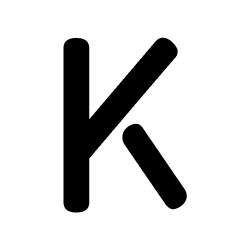Chat-Commerce in Brazil Is Exploding. Here’s What’s Holding It Back.
Brazil’s chat-commerce boom is reshaping e-commerce—but several hidden barriers still hold it back.

DATE
CATEGORY
HASHTAGS
READING TIME
Brazil is leading a silent revolution in how e-commerce happens—through chat. With WhatsApp deeply woven into everyday life, it’s no surprise that chat-commerce is booming. Brands are jumping in, consumers are responding, and transactions are increasingly happening inside messaging apps. But beneath the surface of this growth lies a mix of friction points—technological, operational, and experiential—that keep the market from reaching its full potential. Understanding these hurdles is key to unlocking the future of commerce in Brazil.
Why Brazil Became the Epicenter of Chat-Commerce
In Brazil, WhatsApp is more than a messaging app—it’s a cultural phenomenon. Over 96% of smartphone users in the country use WhatsApp, and it's already a default communication tool for everything from coordinating family dinners to negotiating with local businesses. This ubiquity creates a fertile ground for chat-commerce to thrive.
Add to this the rise of mobile-first shopping behavior, low trust in traditional e-commerce platforms, and a preference for more human-like interactions, and you’ve got the ideal storm for WhatsApp to become the storefront of the future.
But despite all these advantages, many brands are still failing to unlock the full potential of this channel.
“Brazilian consumers are ready to buy in chat. But the experience they’re getting doesn’t always meet their expectations.”
The Experience Gap: Where Most Brands Are Falling Short
Most brands in Brazil still approach WhatsApp with outdated playbooks. They treat it like a helpdesk or a glorified contact form. As a result, what should be a seamless, personal experience often turns into a slow, manual, and fragmented one.
Here are three big pain points holding the market back:
1. Manual Workflows That Don’t Scale
Too many brands rely on human agents to power their chat interactions. While personal, this approach doesn’t scale. Long response times, agent burnout, and inconsistent service plague the customer experience. Consumers expect instant answers, but brands are often hours—or even days—behind.
2. Lack of True Commerce Capabilities
Many chat experiences stop short of actual purchasing. Brands use WhatsApp to answer questions, then push users back to clunky mobile websites or payment links. This creates friction and drop-off. What users want is an end-to-end buying journey inside chat—from discovery to checkout—without switching tabs.
3. Fragmented Tech Stacks
Integrating chat with e-commerce platforms, CRMs, payment gateways, and inventory systems is still a mess. Without a unified backend, brands can’t deliver real-time product availability, pricing, or personalized offers. The result? A disjointed, frustrating experience for both customers and operators.
The Cost of Getting It Wrong
Failing to deliver a smooth chat-commerce experience doesn’t just hurt conversion—it erodes brand trust. Brazilian consumers are highly social, quick to share bad experiences, and increasingly intolerant of friction. If your brand drops the ball in chat, word spreads fast.
Worse still, it opens the door for competitors who are willing to do better—especially agile, digitally native brands who are building for WhatsApp-first commerce from day one.
What the Market Needs: Automation with Humanity
To bridge the gap, Brazil’s chat-commerce market needs tools that are:
- Instantly deployable — no long dev cycles or complex integrations
- Human-like in conversation — not robotic flows, but natural, adaptive assistants
- Fully integrated with commerce systems — offering real-time stock, pricing, and checkout
- Built for local context — Portuguese fluency, regional buying behaviors, and payment preferences
This is where solutions like bKlug come in. Our AI-powered sales assistants are tailored for the Brazilian market and go live in under 2 hours—automating and scaling commerce over WhatsApp while still feeling personal.
By eliminating the operational burden on tech and marketing teams, we enable brands to focus on growth—not managing bots or handling support tickets.
The WhatsApp Opportunity Is Still Just Beginning
The good news? We’re still in the early innings.
Brazil's e-commerce market is expected to reach over $70B USD by 2026, and WhatsApp will only become more deeply embedded in how people shop. Early adopters who invest in seamless, scalable chat-commerce now will have a massive head start.
They’ll convert faster. Serve better. And scale without ballooning headcount.
A Wake-Up Call for Brands
The explosion of chat-commerce in Brazil isn’t just a trend—it’s a permanent shift in consumer behavior. But right now, too many brands are stuck in 2015, applying old-school e-commerce tactics to a new world of messaging-first commerce.
The winners will be those who meet buyers where they are—and deliver the speed, convenience, and personalization they now expect as baseline.
“It’s not about adding WhatsApp to your sales strategy—it’s about rebuilding your sales experience around WhatsApp.”
If you're ready to stop playing catch-up and start leading the market, bKlug is ready to help.
Our AI sales assistants bring together commerce, conversation, and conversion—right where your customers are already chatting.




